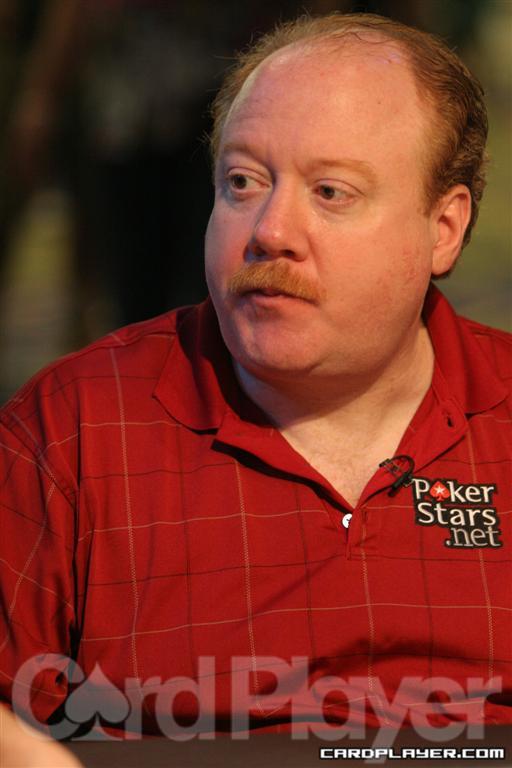






Tournament Trail Q and A -- Dan HeimillerHeimiller Talks About Making Reads Against Unknowns and Those He Plays Against Frequently |
|
|

Heimiller has well over 100 tournament cashes in his career, and his career earnings are currently $2,507,114. Heimiller has been on a hot streak lately, booking the two largest wins of his career in five months time for $687,500. He finished in third place at the World Poker Tour Borgata Poker Open in Septembr 2008 and followed that up with his first final-table appearance on the European Poker Tour, when he finished in seventh place at the 2009 PokerStars Caribbean Adventure.
Card Player caught up with Heimiller in the Bahamas and he shared some of the knowledge he has built up during a wealth of tournament experience.
Ryan Lucchesi: We have seen you at a lot of events lately, and you have been posting consistent results. What has inspired you to travel more?
Dan Heimiller: I’m going to play a lot of tournaments this year. At first, I was going to stick with the United States, but now I’m thinking the European Poker Tour might be even better as far as action goes. I live in Vegas and it’s not really the best place to play; there are so many hardcore players there.
RL: Would say that all the dead money has moved out of the Vegas tournament scene besides the World Series of Poker in the summer? Is that why you’ve begun to travel more?
DH: Yes, yes, although…I’ll still spend at least five months out of the year playing in Vegas because I live there. I will probably spend seven months traveling.
RL: How often in the younger European fields do you run into players who are more aggressive and looser than the usual $10,000 buy-in field at a Vegas event? How do you adapt to those players?
DH: I’m used to it because I’ve played so many $100, $200, and $300 tournaments in my life in California and Vegas. I’ve even played so many $50 and $20 tournaments…when you’ve played tournaments that are $300 and lower, you run into an odd lot of players who have a lot of different motives for being at the table, and they’re not professionals. They have a whole different range of skill levels, so you have to size them up and decide how to play against them, if they’re a loose player, then you can’t bluff them, and if they’re a little bit tighter you can.
RL: How much more studious are you when playing in fields where you haven’t played with as many players as you usually have?
DH: I think you’ve got to study the players no matter what kind of player you’re up against, even if they’re good. Some players, even if they’re good, if they decide to gamble more that day, then they’ll gamble more that day. If they don’t need the money, they might gamble it up. You’ve got to use everything you see and hear to your advantage.
RL: How important is the information presented by each person and their ulterior situation, in addition to the information they provide through betting patterns and tells?

It’s important to adjust your play accordingly and even though he could have played great if he wanted to, you knew that it was below his normal level of gambling stakes. His desire to gamble took over rather than his desire to make money. It’s not necessary for him to make money at that lower level, because he was waiting for a larger game.
People have different dispositions on different days. If you’re in a satellite and Amir Vahedi was playing the satellite, if he had just won a big tournament, he’s going to play badly. If he really wants to win the satellite because he’s had a dry spell for a while, then he’s going to play well, because he needs to win that satellite. Even with the better players, you have to stereotype them for that particular day. Unfortunately, I don’t know a lot of the players who are popular now, I only know the old-timers, I know the people who have been playing for 10 years.
RL: What reads are you trying to make against the young crowd that you don’t know as well, and what information do you take in at the table when you play against them?
DH: How often they play, how often they play their hands, how often they raise, and how much they raise. It gives me an idea of what group of hands they play. Some people are consistent bluffers and stealers, and they bluff at every opportunity. Other people are just sitting there and waiting for good openers and good flops and hoping that’s enough to get them through. If the table is loose, the people who are waiting [end up doing] better, and if the table is tight the bluffers and stealers tend to do better. Of course, it’s who’s in the hand with you that you ultimately have to consider.
